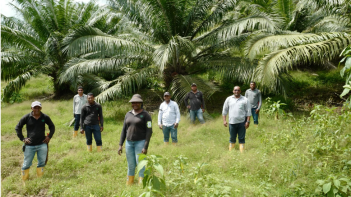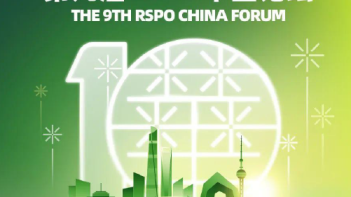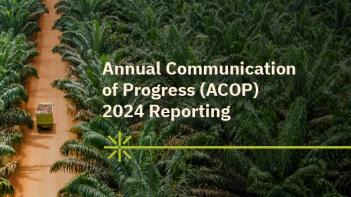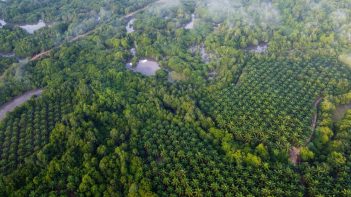All RSPO members share the responsibility of transforming markets to make sustainable palm oil the norm. The RSPO Theory of Change (ToC) is underpinned by the concept of Shared Responsibility and accountability for greater progress towards sustainability. The RSPO Shared Responsibility Requirements and Implementation document was endorsed by the RSPO Board of Governors (BoG) on 31 October 2019. Shared Responsibility (SR) for downstream actors translates into a sustainable supply chain by adopting sustainable policies and plans, demonstrating accountability, allocating resources for implementation, and collective effort to create a higher demand for certified sustainable oil palm products.
The Shared Responsibility Working Group (SRWG) is mandated to work on the practical implementation of SR requirements, specifically in reviewing the CSPO supply and demand projections and making a recommendation to the BoG for the percentage point increase of certified uptake by supply chain members as per the SR26 requirement on volumes.
Against this background, the RSPO BoG has recently endorsed the following uptake targets for Year Three (2022) for existing members:
-
For Processors and Traders (P&T) the uptake target is 2% points growth in CSPO uptake.
-
For Consumer Goods Manufacturers (CGM) and Retailers (RT) the uptake target is 12% points growth in CSPO uptake.
Given the current tightness of the CSPKO market, there will not be any uptake targets for CSPKO in 2022. However, members are encouraged to continue increasing their sourcing of CSPKO volumes.
‘’Collectively as end users of palm oil, we have a responsibility to reward growers with an uptake of physical CSPO to drive industry conversion towards sustainable production. Driving an increase in CSPO uptake will also play a critical role in realising and addressing the demand for greater availability of CSPKO, ultimately driving further conversion to sustainable production of both CSPO and CSPKO,’’ says Girish Deshpande, Sustainability Director at Procter & Gamble, and SRWG Co-Chair.
The FAQ includes an example of how to calculate the baseline and the uptake targets in volumes. If you have any questions or need support with calculating your uptake target volume, please contact [email protected].
Keep reading

Latin American Smallholders, Key Global Brands Gather in Peruvian Amazon to Advance Sustainable Palm Oil

RSPO Forum for Members and Certification Bodies 2025: Strengthening Capacities and Building Bridges with RSPO Members

From Violence to Prosperity: Cultivating Sustainable Palm Oil in San Pablo, Colombia

Palmas de Tumaco: Enduring, Trusting, and Transforming in Colombia’s Pacific Coast
Carry Over Credits for Certified Independent Smallholder Groups

From the Amazon to the Aisles: Discovering Sustainable Palm Oil in the Heart of Peru

Global Trends of Sustainable Palm Oil and China's Pathway

Final list of ACOP 2024 Non Submitters




